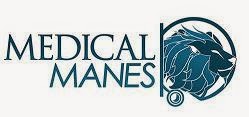Headlines in my National Post last week: "Trainees bow to doctors - and patients suffer."
The interviewee was an anesthesiology resident who self-righteously described the treatment by a senior resident and consultant anesthesiologist of a new mother with a serious blood infection, as having been responsible for her death. He knew better than they, knew the treatment was likely to kill her, but said nothing.The reason? He lacked the courage to mention this to the attending physicians because he felt intimidated. He thought he might be making a fool of himself, so he said nothing and made a fool of himself! He felt so intimidated by the situation that he must have concluded that it would be better to let the woman die than take that risk - even though he was confident that the treatment might kill her. He blames the whole thing on the pressure to bow to authority. It was obviously a better choice to say nothing than to possibly alienate himself from instructors who might have an negative influence on his future. In effect, he is accusing them of incompetence without due process.
The article went on to describe how trainees complained that fear and intimidation prevent them from questioning their teachers who seemed to enjoy intellectually abusing them and teaching by "shock and trauma". It complained how even the nurses "lorded" it over them (poor darlings), right until the last minute when they got their specialty qualification. In a lifetime of training Family Medicine residents, I can't ever remember encountering such a feckless bunch. I guess in the interim things may have changed a good deal more than I realized. The incident, according to the interviewee, 'inspired' him to conduct a study that suggests that the pressure to bow to authority weighs so heavily that it put patients at risk. I would frame it another way, that it requires residents to be responsible to their trainers and to ask them to explain their actions and to challenge them when necessary. It is the responsibility of the resident to have the courage to stick his neck out in the interests of his patient if he really believes it to be in the interest of his patient. In this case, the resident obviously put his own interests first. Interpret that as 'bowing to authority', if you like. Having been a patient on occasions, as well as a physician for more than half a century, I certainly want the residents looking after me to be responsible to 'authority', if that means a responsible experienced physician.
I have trained Family Medicine residents for a substantial part of my life, both as a community based physician and as an academic and have rarely found them to be hesitant in voicing their opinions. If they are baselessly being victimized for that, there are many channels to seek redress. To assume, without any attempt to provide an evidence base, that one's preceptors are wrong and one knows better, is arrogance, and is one of the most dangerous traits a young physicians can show. Unfortunately, I smell it here.
Perhaps respect and 'bow to' are synonymous in the mind of the writer.
One thing hasn't changed. To be a good physician, you have to be made of the right stuff.

No comments:
Post a Comment